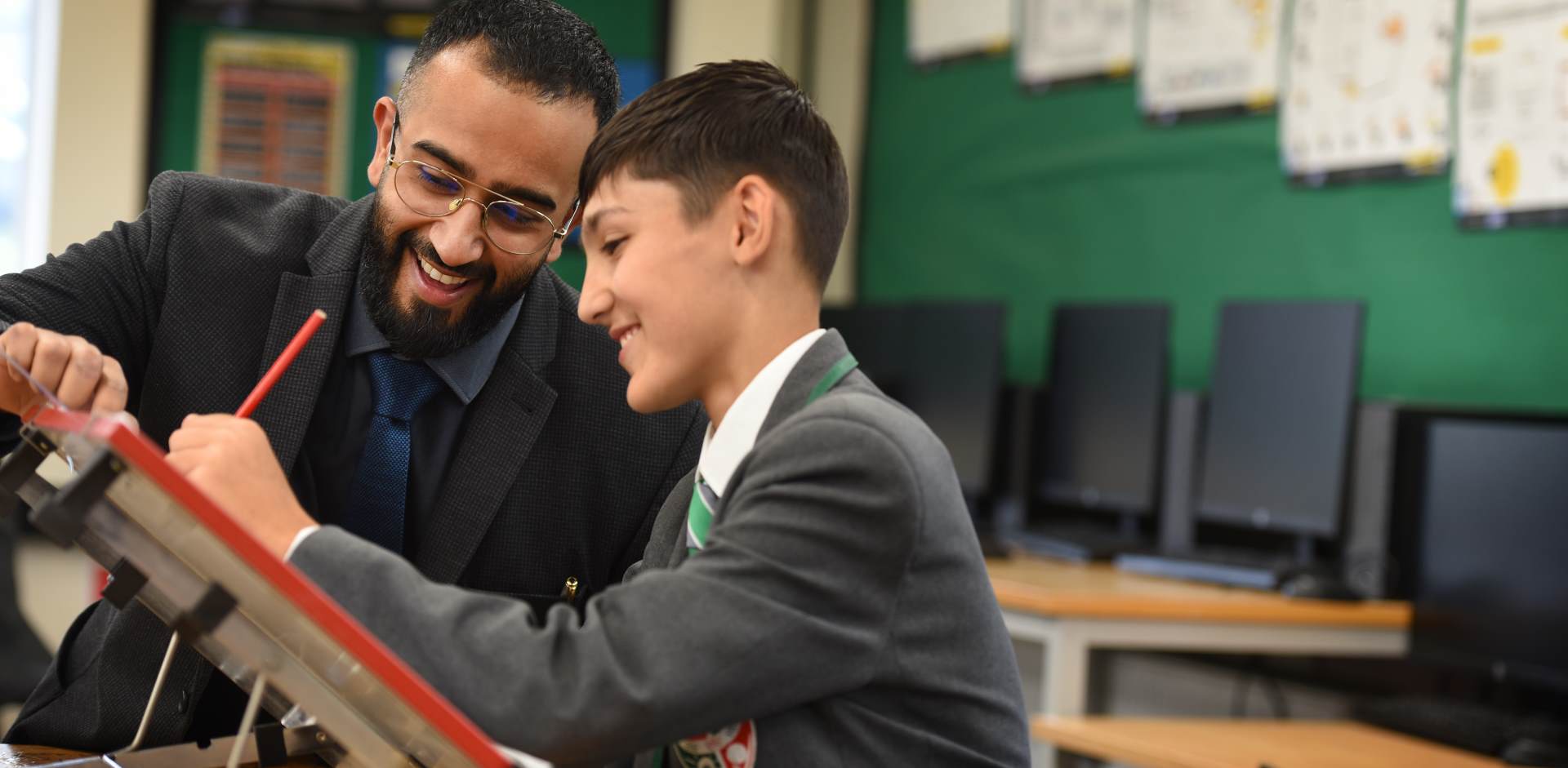Teaching, Learning & Assessment
The quality of teaching at Challney High School for Boys is outstanding and rarely less than consistently good. Learning is at the heart of what we do. All staff and students are viewed as lifelong learners. High-quality teaching coupled with high expectations evidenced by staff and students ensures that the vast majority of students make rapid and sustained progress.

Staff (teachers and Teaching Assistants), at our school, demonstrate excellent subject knowledge and work tirelessly to plan and deliver lessons which challenge and engage our students. Our robust curriculum also inspires and motivates students to succeed in all aspects of school life, whether it is within or outside the classroom. Our aims are clearly laid out in the Teaching, Learning and Assessment policy which stresses the importance of delivering engaging and challenging lessons, many of which are also led by student leaders whose input contribute to enriched school experiences.
Students are supported to take responsibility for their own learning as well as that of their peers as they: work collaboratively, give feedback on lessons, think creatively, challenge and participate effectively and reflect on their own learning. Some are trained as Teaching Partners, and thus able to observe and provide feedback on the quality of teaching to a range of staff and know how to work with others thus shaping invaluable contributions to learning.
Our school has recently refined its assessment practice. As a result, a more holistic approach has been adopted and we are better able to inform all stakeholders of both attainment and progress made in lessons, over time. This refined assessment practice which actively values the test grades, the quality of class work and independent learning effectively support pupil’s learning. The more overt message is not only to celebrate all aspects of work and to foster a greater degree of independent learning but to also ensure that the assessment regime is clearer to all stakeholders e.g. parents/carers and governors.
To further support students’ well-being, we take into account their prior data and set challenging but achievable targets at the start of each year. Students can confidently discuss their targets and their learning, at appropriate stages in lessons. By so doing, they are able to reflect on how to take the next steps with their work. Through peer and self-assessment, students are provided with opportunities to mark their own and that of their peers by following structured guidelines and mark schemes.
Extensive use of data and personal knowledge of students helps us with early identification of those who need additional stretch and challenge or support with their learning. More able students develop their skills through special projects, for example, visiting more prestigious universities and national competitions. However, all are provided with a range of opportunities to extend their existing knowledge and skills and become leaders in learning within lessons.
